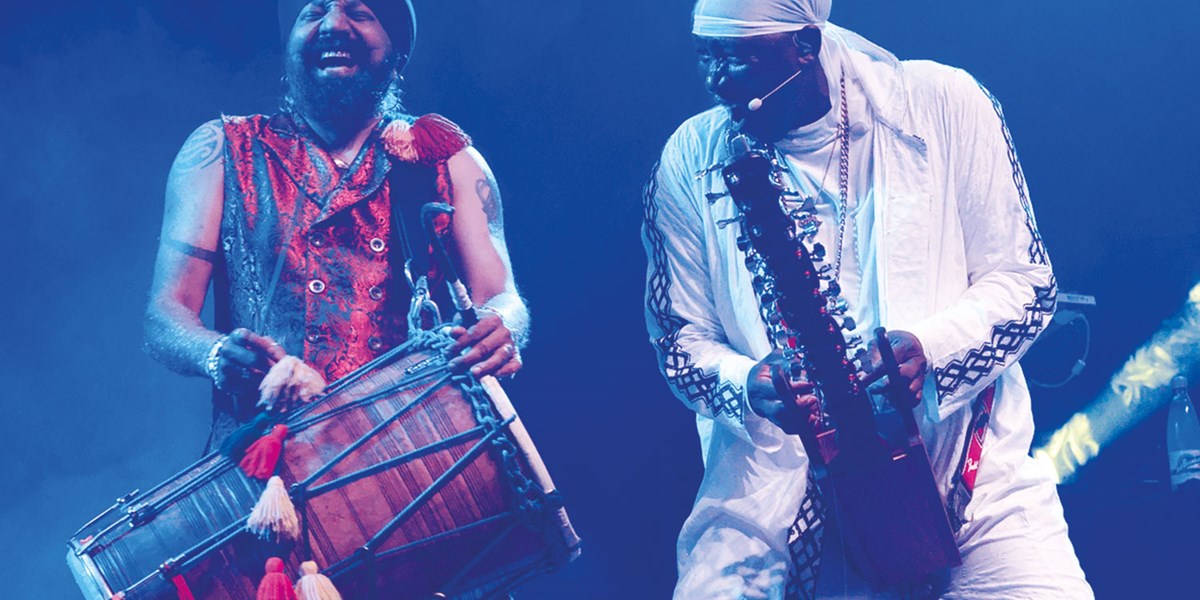Friday, October 4, 2024
The return of Afro Celt Sound System
The global groove and harmony evangelists return with their first album since the death of founder Simon Emmerson. Jane Cornwell chats to original members, and now bandleaders, Johnny Kalsi and N’Faly Kouyaté

Afro Celt Sound System's Johnny Kalsi and N’Faly Kouyaté (photo: Kees Stravers)

Register now to continue reading

Thanks for visiting the Songlines website, your guide to an extraordinary world of music and culture. Sign up for a free account now to enjoy:
- Free access to 2 subscriber-only articles and album reviews every month
- Unlimited access to our news and awards pages
- Our regular email newsletters

